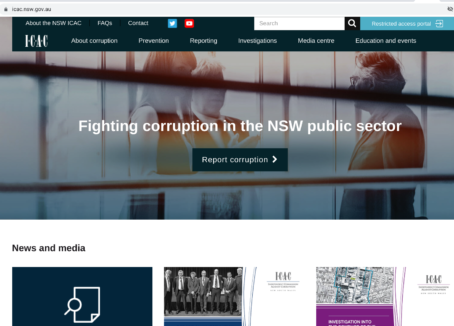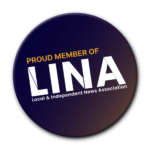Here’s an issue for potential councillors of the Central Coast to address.
The State Government’s Office of Local Government is looking for councillor input on its new proposed guidelines in managing corruption risks associated with the lobbying of councillors and staff.
Central Coast Council doesn’t have councillors – we are under administration until 2024.
The Coast was put into administration in October 2020 when the CEO at the time announced the council had immediate and substantial cash flow issues.
Since then, the council-under-administration has been the subject of a public inquiry which recommended the councillors be sacked.
The Minister has decided elections for new councillors will take place in September 2024.
But,in the meantime, if you were a councillor, what advice would you give the Minister for Local Government Wendy Tuckerman?
ICAC has recommended:
- that the Office of Local Government (OLG), in consultation with the local government sector, develop guidelines to enhance transparency around the lobbying of councillors and
- that the Lobbying of Government Officials Act 2011 (the LOGO Act) is amended to ensure all provisions apply to local government staff.
In response to ICAC’s recommendations, OLG is proposing to develop guidelines to enhance transparency around the lobbying of councillors.
To assist with the development of the policy, OLG is seeking the following:
- councils’ views and suggestions on ICAC’s recommendations on the proposed guidelines
- suggestions on what issues, behaviours and risks need to be addressed
- information about what measures councils currently take to enhance transparency and promote honesty around the lobbying of councillors.
Submissions may be emailed to olg@olg.nsw.gov.au and should be labelled ‘Lobbying Guidelines’ and marked to the attention of OLG’s Council Governance Team.
Submissions should be made by COB Monday 5 September 2022.

In recent investigations, (Operation Dasha, Operation Eclipse and Operation Witney), the Independent Commission Against Corruption (ICAC) considered the corruption risks associated with the lobbying of councillors and made corruption prevention recommendations.
Operation Eclipse Key finding 5
The local government sector faces considerable risk of undue influence and should be regulated by the LOGO Act.
Investigations conducted by ICAC and interstate anti-corruption commissions indicated that local councils are often the target of improper lobbying, the OLG press release said,
However, local government officials are not “government officials” as defined by, and for the purposes of, the LOGO Act.
The Model Code of Conduct for Local Councils in NSW does not explicitly refer to lobbying; however, it does contain general obligations in relation to ethical and honest conduct, as well as more detailed material covering:
- improper and undue influence
- inappropriate interactions
- use and security of confidential information
- recordkeeping.
“Extending the provisions of the LOGO Act to local government would, among other matters, allow the lobbying regulator to provide guidance about the appropriate policies and procedures that would best suit the circumstances of local councils, particularly regarding matters about planning, land use, the environment and community amenities,” the ICAC recommendation said.
Operation Dasha Recommendation 8 suggested the following guidelines:
- councils provide meeting facilities to councillors (where practical) so that they may meet in a formal setting with parties who have an interest in a development matter
- councils make available a member of council staff to be present at such a meeting and to prepare an official file note of that meeting to be kept on the council’s files (any additional notes made by the member of council staff and/or the councillor should also be kept as part of the council’s records)
- all councillors be invited when a council conducts formal onsite meetings for controversial re-zonings and developments, and
- council officers disclose in writing to the general manager any attempts by councillors to influence them over the contents or recommendations contained in any report to council and/or relating to planning and development in the local government area.
Operation Witney Recommendation 9 suggested the Department of Planning and Environment ensures any guidelines include advice about:
- the nature and frequency of meetings between councillors and interested parties, including the need to ensure transparency around these interactions
- how and where to report concerns about lobbying practices
- the receipt of submissions outside of formal processes, including the transmission of material to specific councillors in a way that excludes other councillors and staff
- councillors’ attendance at staff meetings with parties interested in an outcome
- councillor representations to staff arising from lobbying interactions, and
- the lobbying of councillors by interested parties with whom they have a preexisting relationship.
Where to go for further information
- ICAC’s report on Operation Dasha is available here.
- ICAC’s report on Operation Eclipse is available here.
- ICAC’s report on Operation Witney is available here.
Information on the operation of the LOGO Act is available here.


